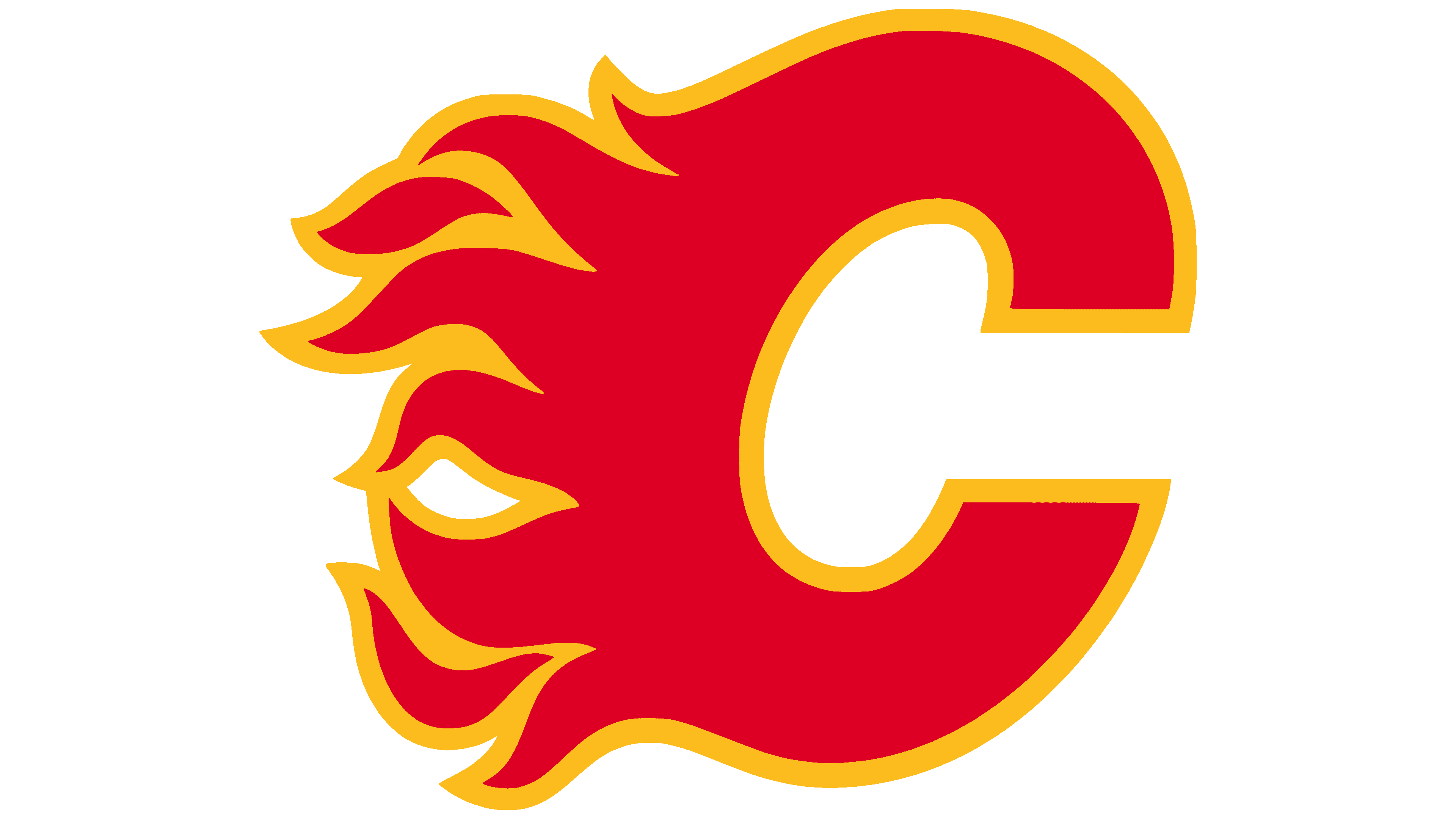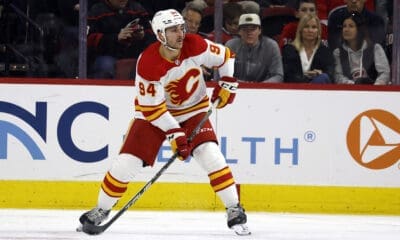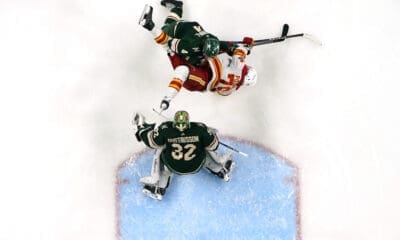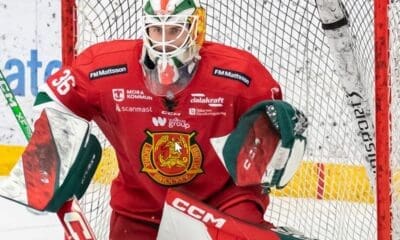Calgary Flames
“Dry Island”: The Effects of Hardcore Partying and Drinking On A Team Environment

Chances are, if you're reading this and over the age of eighteen, you've been drunk at some point in your life. Chances are, if you're reading this, have recently been traded to the Columbus Blue Jackets or the LA Kings and your name is either Jeff Carter or Mike Richards, you've been drunk a lot. Or so the rumors say.
Clearly, I can't say whether those rumors hold any water. I have no personal knowledge of the situation. I've been to Philadelphia about two total times in my life, have only met one current Philadelphia Flyer (Chris Pronger) and know absolutely zero people who work for the team. Still, it's safe to assume that Mike Richards and Jeff Carter, both single young men with disposable income in a large city where they're popular athletes, have consumed alcohol from time to time and even probably been drunk.
I work in a high stress environment: it's an airstation. Ever see the movie The Guardian? A lot of the people I work with do that for a living: jumping out of helicopters into twenty or thirty foot seas. These men and women train every day- in regards to both their physical abilities as well as their skills. Similarly, I've been stationed afloat, on a Coast Guard cutter. In addition to our normal work, we constantly practice for emergencies. A fire at sea is one of the worst things that could possibly happen, so we're always training for fires in every possible area of the ship. We train for flooding and hull breaches; HAZMAT leaks and, of course, General Quarters.
When we don't train together, we drink together. It's not a surprise that excessive or even mild alcohol consumption causes problems. Tempers flare, shipmates get into fights, officers and enlisted cross certain lines, and so on. Alcohol absolutely causes problems. But the next day- when the search and rescue call comes in- we are trained to set all of that aside and focus entirely on the SAR case. I've seen operations specialists, known to hate each other so much they won't even speak except in a professional setting, set everything aside and work 20 hours straight searching for a lost scuba diver. I've seen two officers nearly at blows drop everything and ready a helo for flight in fifteen minutes. Alcohol causes problems, to be certain, but very rarely does it interfere with what really matter.
I'd propose that this is largely the same for a hockey team. Drinking off the ice will absolutely cause problems: look at the tragic story of Dany Heatley and Dan Snyder. But even despite that awful awful tragedy and the time spent recovering from injuries, Heatley's play never really suffered from either the alcohol directly or the secondary problems that came with the car accident: the media, the locker room issues, even the personal trauma of what had happened. So can drinking or alcohol cause a problem in a team setting that will negatively affect perfomance? Absolutely.
The first thing that is immediately named a problem is alcoholism. It's a very large problem too- alcoholism will impede every aspect of a player's life- they will show up to practice or games drunk- if at all. They will be physically unprepared, mentally incapable, and so on. Alcoholism is really a big enough problem though that it's not even worth worrying about the on ice aspect- how it will affect someone's personal life (both short and long term) is far more important, and alcoholism will wreck that.
That being said, I'd argue that any trades concerning a player's lifestyle are more about the team's reputation in local media than actual on-ice performance. Assuming alcohol and partying was a huge part of the lives of Mike Richards and Jeff Carter, can anyone really look at the play of the two of them and say "They were worse players for it"? I highly doubt it- both were clearly highly motivated and playing at a very good level.
It's far more likely that the team owners decided the players in question had too much of a poor reputation and- in this day and age of Deadspin and Perez Whatever- would better serve the team fiscally by being a distraction elsewhere. The other (less likely) possibility is that the partying was, in fact, causing problems and tension in the locker room and too many players were complaining. While that won't necessarily affect on ice performance, it behooves a General Manager and coach to the keep the majority of players happy- especially on a team as deep as Philadelphia.
Alcohol is a very real problem for a lot of hockey players and people in general. The fact that we make two young men partying out to be a "locker room problem" that is ruining a team only serves to take away from those who truly do struggle with these issues.
I also highly suggest reading Peter Raaymaker's piece The Human Toll of Fighting in the NHL at Silver Seven Sens. He talks briefly about the very important work being done by the NHLPA's Substance Abuse program which has helped plenty of players with alcohol addiction among other addictions.
by Arik Knapp








